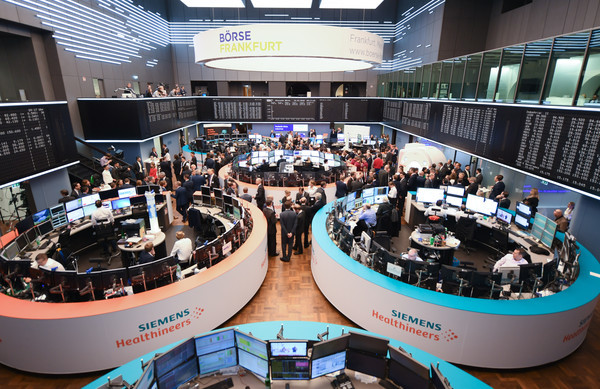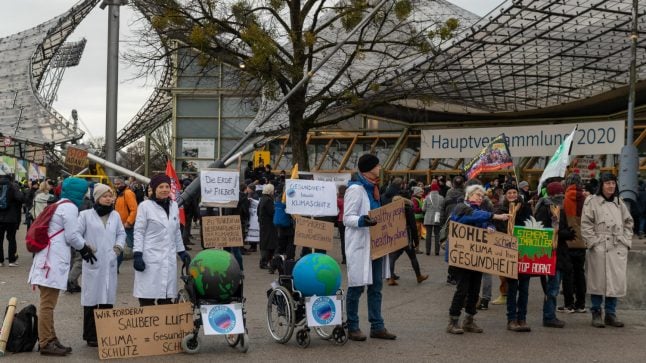SIEMENS
Siemens’ health unit shares surge in Frankfurt debut
Shares in Siemens' Healthineers unit surged in their debut on the Frankfurt stock exchange Friday, after the industrial giant raised €4.2 billion in a more muted than expected initial public offering.
Published: 17 March 2018 01:57 CET

Photo: Arne Dedert/DPA
Shares jumped more than eight percent to close at €30.38 euros ($37.34) on the first day of trading, whose start was delayed by some 45 minutes because of a technical hitch.
The market launch was one of Germany's biggest in recent years, but nevertheless fell below expectations after Siemens priced the 150 million shares up for grabs — representing a 15-percent stake in Healthineers — at €28 each.
The price came in at the bottom end of Siemens' initial guidance range of €26 to €31 per share, and values the medical company at some €28 billion.
One of Siemens' largest and most valuable divisions, Healthineers supplies hospitals around the world with everything from X-ray and MRI machines to lab diagnostics gear and robotic arms used in the operating theatre.
It's in robust health, achieving an operating profit margin of around 18 percent last year and revenues of 13.8 billion euros, second only to Siemens' flagship but troubled power and gas unit.
Market volatility
Its flotation comes as the sprawling Siemens conglomerate seeks to become more nimble in response to changing markets and stronger competition. Last year, the group announced a tie-up of its train construction business with French rival Alstom to create a European rail giant, merged its wind energy unit with Spain's Gamesa and unveiled plans to slash some 7,000 energy jobs due to falling global demand for its power plant turbines.
Healthineers' initial public offering (IPO) was tipped to be the largest on Frankfurt's blue-chip Dax index in over two decades when it was first announced by Siemens late last year, with analysts estimating the offering would generate some €9 billion. But those expectations were dashed when Siemens this month said it would offer the stock at the lower-than-expected range of between €26 and €31 per share, partly because of a spike in market volatility in recent weeks that has sapped investor demand.
The last Frankfurt IPO of a similar size was 2016's listing of RWE's renewables spin-off Innogy, which raised around €4.6 billion.
Healthineers' chief executive Bernd Montag has said the flotation would allow the unit to focus on being “a pure medical technology company”, giving it “more flexibility” and the ability to raise its own capital for any future takeovers.
Healthineers is a world leader in medical imaging products in terms of annual revenues. But it lags behind competitors such as General Electric, Roche and Philips in the areas of diagnostics — which includes machines to analyse blood and urine tests — and advanced therapies, which focus on enabling minimally invasive medical procedures.
Url copied to clipboard!



 Please whitelist us to continue reading.
Please whitelist us to continue reading.